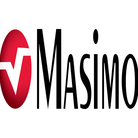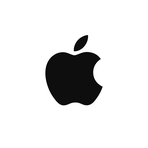Apple vs. Masimo: A Legal Tug-of-War Over Smartwatch Patents
October 28, 2024, 6:24 pm
In the high-stakes world of technology, the courtroom can be as fierce as the marketplace. Recently, Apple emerged victorious in a patent dispute against Masimo, a medical technology company. The case, decided by a jury in Delaware, revolved around claims that Masimo's smartwatches infringed on Apple's design patents. The outcome? A mere $250 awarded to Apple. But the implications stretch far beyond the dollar amount.
The jury found that Masimo's W1 and Freedom smartwatches willfully violated Apple's design patents. This ruling, however, was not the knockout punch Apple sought. The tech giant aimed for an injunction to halt the sales of Masimo's smartwatches. Instead, the jury limited its decision to two discontinued models, leaving Masimo's current products untouched. In the eyes of Masimo, this was a victory. They celebrated the jury's decision as a validation of their position, asserting that Apple’s aggressive legal tactics were merely an attempt to stifle competition.
This legal battle is a microcosm of a larger war in the tech industry. Companies are not just competing for market share; they are fighting for intellectual property. The stakes are high. For Apple, the fight is about protecting its innovations. For Masimo, it’s about survival in a market dominated by giants. The courtroom is their battlefield, and every ruling can shift the balance of power.
Masimo has accused Apple of more than just patent infringement. They allege that Apple poached their employees and stole technology related to pulse oximetry. This accusation adds a layer of complexity to the case. It’s not just about designs; it’s about trust and ethics in business practices. The tech world is rife with stories of companies crossing lines to gain an edge. Masimo’s claims paint Apple as a corporate predator, lurking in the shadows, ready to snatch up talent and technology.
The saga doesn’t end here. Last year, Masimo successfully lobbied the U.S. International Trade Commission to block imports of Apple’s Series 9 and Ultra 2 smartwatches. The commission found that Apple’s blood oxygen monitoring technology infringed on Masimo’s patents. Apple countered by appealing the decision and removing the contested technology from its products. This back-and-forth illustrates the relentless nature of patent disputes in the tech industry. Each side is locked in a dance, with each move met by a counter-move.
Apple’s response to the jury’s decision was measured. They expressed satisfaction that the ruling would protect their innovations. However, the $250 award is a drop in the bucket for a company valued at over $2 trillion. The real prize for Apple is the precedent set by the case. They want to deter other companies from infringing on their patents. In a world where technology evolves at lightning speed, protecting intellectual property is crucial.
Masimo, on the other hand, sees the ruling as a shield against Apple’s aggressive tactics. They argue that Apple’s lawsuit was retaliatory, a way to distract from their own legal troubles. The courtroom is not just a place for legal battles; it’s a stage for public relations. Each company must craft its narrative, shaping how the public perceives them.
The implications of this case extend beyond the immediate parties involved. It highlights the challenges faced by smaller companies in a landscape dominated by tech giants. Masimo, with its focus on medical technology, is dwarfed by Apple’s vast resources. This disparity raises questions about fairness in competition. Can smaller companies survive when larger ones wield the power of the legal system?
As the dust settles from this latest round, both companies are likely to regroup and strategize. Apple will continue to refine its legal approach, seeking to protect its innovations while expanding its market share. Masimo will likely double down on its claims of unfair practices, using this case as a rallying point to garner support from other small tech firms.
In the end, this legal battle is emblematic of a broader struggle in the tech industry. It’s a clash of titans, where every patent, every design, and every employee can tip the scales. The courtroom is a battleground, and the stakes are nothing less than the future of innovation. As companies like Apple and Masimo navigate this treacherous landscape, one thing is clear: the fight for intellectual property is far from over. The next round is just around the corner, and both sides are gearing up for what promises to be another fierce encounter.
The jury found that Masimo's W1 and Freedom smartwatches willfully violated Apple's design patents. This ruling, however, was not the knockout punch Apple sought. The tech giant aimed for an injunction to halt the sales of Masimo's smartwatches. Instead, the jury limited its decision to two discontinued models, leaving Masimo's current products untouched. In the eyes of Masimo, this was a victory. They celebrated the jury's decision as a validation of their position, asserting that Apple’s aggressive legal tactics were merely an attempt to stifle competition.
This legal battle is a microcosm of a larger war in the tech industry. Companies are not just competing for market share; they are fighting for intellectual property. The stakes are high. For Apple, the fight is about protecting its innovations. For Masimo, it’s about survival in a market dominated by giants. The courtroom is their battlefield, and every ruling can shift the balance of power.
Masimo has accused Apple of more than just patent infringement. They allege that Apple poached their employees and stole technology related to pulse oximetry. This accusation adds a layer of complexity to the case. It’s not just about designs; it’s about trust and ethics in business practices. The tech world is rife with stories of companies crossing lines to gain an edge. Masimo’s claims paint Apple as a corporate predator, lurking in the shadows, ready to snatch up talent and technology.
The saga doesn’t end here. Last year, Masimo successfully lobbied the U.S. International Trade Commission to block imports of Apple’s Series 9 and Ultra 2 smartwatches. The commission found that Apple’s blood oxygen monitoring technology infringed on Masimo’s patents. Apple countered by appealing the decision and removing the contested technology from its products. This back-and-forth illustrates the relentless nature of patent disputes in the tech industry. Each side is locked in a dance, with each move met by a counter-move.
Apple’s response to the jury’s decision was measured. They expressed satisfaction that the ruling would protect their innovations. However, the $250 award is a drop in the bucket for a company valued at over $2 trillion. The real prize for Apple is the precedent set by the case. They want to deter other companies from infringing on their patents. In a world where technology evolves at lightning speed, protecting intellectual property is crucial.
Masimo, on the other hand, sees the ruling as a shield against Apple’s aggressive tactics. They argue that Apple’s lawsuit was retaliatory, a way to distract from their own legal troubles. The courtroom is not just a place for legal battles; it’s a stage for public relations. Each company must craft its narrative, shaping how the public perceives them.
The implications of this case extend beyond the immediate parties involved. It highlights the challenges faced by smaller companies in a landscape dominated by tech giants. Masimo, with its focus on medical technology, is dwarfed by Apple’s vast resources. This disparity raises questions about fairness in competition. Can smaller companies survive when larger ones wield the power of the legal system?
As the dust settles from this latest round, both companies are likely to regroup and strategize. Apple will continue to refine its legal approach, seeking to protect its innovations while expanding its market share. Masimo will likely double down on its claims of unfair practices, using this case as a rallying point to garner support from other small tech firms.
In the end, this legal battle is emblematic of a broader struggle in the tech industry. It’s a clash of titans, where every patent, every design, and every employee can tip the scales. The courtroom is a battleground, and the stakes are nothing less than the future of innovation. As companies like Apple and Masimo navigate this treacherous landscape, one thing is clear: the fight for intellectual property is far from over. The next round is just around the corner, and both sides are gearing up for what promises to be another fierce encounter.

